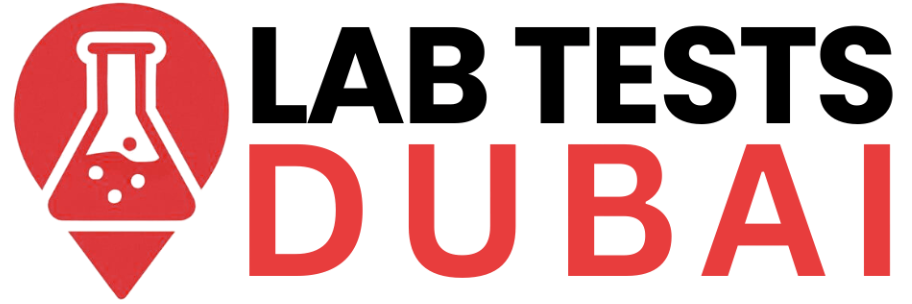
Complement C1q Functional Activity Assay – Precise Serum Analysis for Immune System Diagnostics & Research
750,00 د.إ
Sample Type : Serum
Methodology : Nephelometry or Turbidimetry
TAT : 10 Days
Description
Complement C1q Functional Activity Assay – Precise Serum Analysis for Immune System Diagnostics
The Complement C1q Functional Activity Assay from Lab Tests Dubai is a highly specialized diagnostic test that evaluates the functional performance of C1q, a pivotal protein in the classical complement pathway of the immune system. Unlike standard antigen-level tests, this assay measures how well C1q works—not just how much is present—providing a deeper, more clinically relevant insight into immune health.
Using advanced nephelometry or turbidimetry techniques, this serum-based test delivers accurate, reproducible results within 10 days, making it an essential tool for diagnosing and monitoring autoimmune diseases, immune deficiencies, and post-transplant complications.
For patients with unexplained inflammation, recurrent infections, or suspected systemic lupus erythematosus (SLE), the C1q functional assay offers critical clarity—helping doctors identify root causes, tailor treatments, and prevent irreversible organ damage.
At Lab Tests Dubai, we bring cutting-edge immunology testing to clinicians and patients across the UAE with CLIA-standard accuracy and full confidentiality.
Why You Need This Test
Your immune system is only as strong as its weakest link—and C1q is one of its first responders. When C1q fails to function properly, your body struggles to clear immune complexes, fight infections, and regulate inflammation.
You may need this test if:
- You’ve been diagnosed with or suspect lupus (SLE) or another autoimmune disorder
- You suffer from recurrent infections or unexplained immune dysfunction
- You’re a transplant recipient being monitored for rejection risks
- You have chronic kidney disease (e.g., glomerulonephritis) linked to immune complexes
- Your doctor has noted low complement levels (C3, C4) and wants to investigate further
Because low C1q function is strongly linked to SLE and lupus nephritis, this test is often used to confirm diagnosis, assess severity, and monitor treatment response.
Symptoms That Indicate This Test
Consider the Complement C1q Functional Activity Assay if you or a loved one is experiencing:
- Persistent fatigue or low-grade fever
- Joint pain, swelling, or stiffness (especially in fingers, knees, wrists)
- Butterfly-shaped rash across the cheeks and nose (malar rash)
- Photosensitivity or unexplained skin lesions
- Recurrent infections (sinus, respiratory, urinary)
- Swelling in limbs, face, or abdomen (signs of kidney involvement)
- Fever, discomfort, or organ dysfunction after organ transplant
- Blood or protein in urine – possible glomerulonephritis
These symptoms may point to immune dysregulation, where the C1q assay provides objective, lab-confirmed data to guide diagnosis and therapy.
Natural Production: How C1q Works in the Immune System
Complement C1q is naturally produced by macrophages and dendritic cells—key players in the innate immune system. It acts as a “molecular sensor”, binding to:
- Antibody-antigen complexes (immune complexes)
- Apoptotic (dying) cells
- Certain pathogens (bacteria, viruses)
Once bound, C1q activates the classical complement pathway, triggering a cascade that leads to:
✅ Pathogen destruction
✅ Clearance of cellular debris
✅ Inflammation modulation
✅ Support for adaptive immunity
However, genetic deficiencies (e.g., C1q deficiency) or autoimmune activity can impair this function—leading to accumulation of immune complexes and tissue damage, especially in the skin and kidneys.
This test doesn’t just measure C1q quantity—it assesses functional activity, which is far more meaningful in clinical practice.
What Happens If Untreated? Risks of C1q Dysfunction
Ignoring abnormal C1q function can lead to serious, long-term consequences:
⚠️ Autoimmune Progression:
- Untreated lupus can progress to kidney failure (lupus nephritis), neurological damage, or cardiovascular disease
⚠️ Immune Deficiency:
- Increased risk of severe, recurrent infections due to impaired pathogen clearance
⚠️ Transplant Rejection:
- Undetected complement activation may contribute to acute or chronic graft rejection
⚠️ Chronic Inflammation:
- Persistent immune complex deposition leads to vasculitis, arthritis, and organ damage
Early detection via the C1q Functional Assay allows for timely immunosuppressive therapy, plasma monitoring, or preventive care—potentially halting disease progression.
How to Prepare for the Test
Preparing for this test is straightforward:
✅ No fasting required
✅ Continue your regular medications—but inform your doctor of all drugs and supplements
- Especially: immunosuppressants, steroids, biologics, or anticoagulants
✅ Avoid strenuous exercise or acute illness before testing (can temporarily alter immune markers)
✅ For transplant patients: Follow your specialist’s timing guidance
A simple blood draw is all that’s needed. Our professional team ensures a smooth, comfortable experience at our Dubai labs or via home sample collection.
Test Overview: Advanced Nephelometry for Immune Precision
| Feature | Details |
| Test Name | Complement C1q Functional Activity Assay |
| Sample Type | Serum (Blood) |
| Methodology | Nephelometry / Turbidimetry |
| Turnaround Time (TAT) | 10 Days |
| Category | Clinical Chemistry / Immunology |
| Purpose | Assess functional C1q activity in autoimmune, immune deficiency & transplant cases |
| Testing Location | Lab Tests Dubai – Accredited Labs Across UAE |
Nephelometry measures light scatter caused by immune complex formation, while turbidimetryassesses solution cloudiness—both offering high sensitivity and reproducibility. This functional assay is superior to antigenic tests, as it reflects real-world immune performance.
FAQs About the Complement C1q Functional Assay
Q: What does “functional activity” mean?
A: It measures how well C1q activates the complement cascade, not just how much protein is present.
Q: Is this test used for lupus diagnosis?
A: Yes. Low C1q function is strongly associated with SLE, especially lupus nephritis, and helps confirm diagnosis.
Q: Can low C1q cause symptoms?
A: Yes—genetic C1q deficiency causes severe autoimmune disease, often in childhood.
Q: Can medications affect C1q levels?
A: Immunosuppressants and biologics may influence results—always disclose your treatment plan.
Q: Is the test available for children?
A: Yes. We offer pediatric-friendly phlebotomy services for young patients with suspected immune disorders.
Q: How will I receive results?
A: A detailed digital report is emailed within 10 business days, including functional activity percentage and clinical interpretation.
Your immune system speaks in molecules—and C1q is one of its loudest signals. If you’re struggling with unexplained rashes, joint pain, fatigue, or post-transplant monitoring, the Complement C1q Functional Activity Assay could be the missing piece in your diagnostic puzzle.




Reviews
There are no reviews yet.